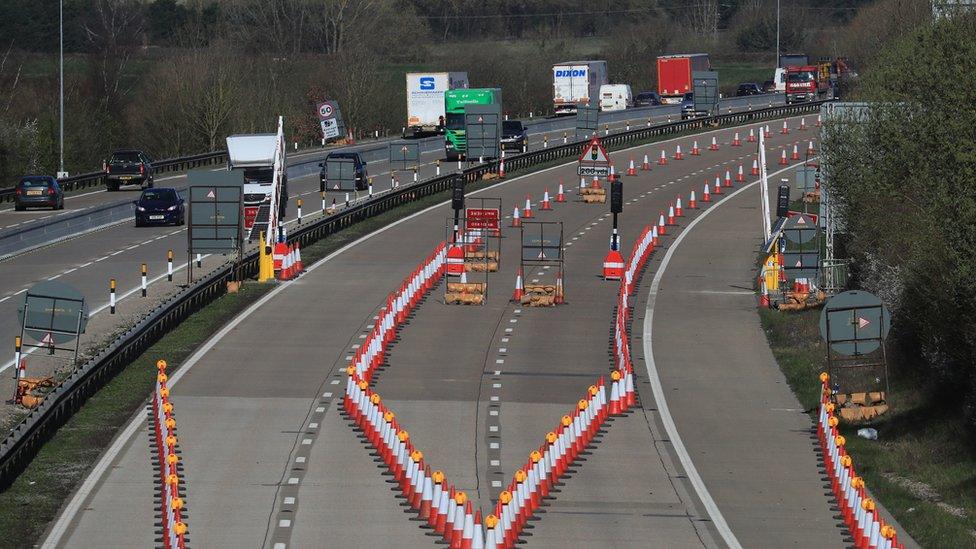Operation Brock M20 barrier test as Brexit date looms
- Published
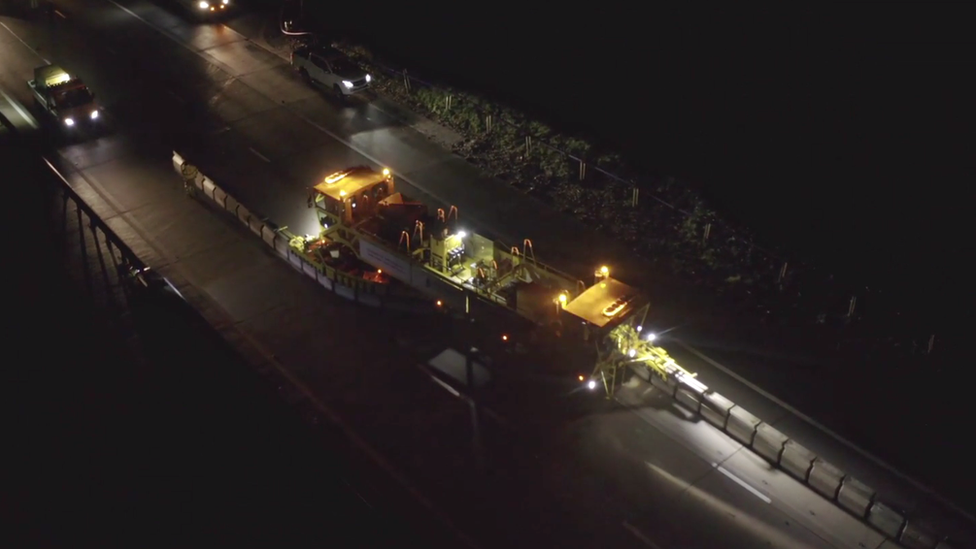
A moveable barrier was put in place on the M20 on Friday
A motorway barrier system designed to deal with potential traffic disruption in Kent at the end of the Brexit transition period is being tested.
Highways England and the Kent Resilience Forum began a trial of Operation Brock on Friday night.
Brock allows the M20 to stay open if HGVs heading for Dover port have to queue during cross-Channel disruption.
The motorway will be closed overnight until Tuesday, with contraflows in the daytime and diversions in place, external.
Authorities have warned of the potential for delays, external when new border controls are implemented from 1 January.
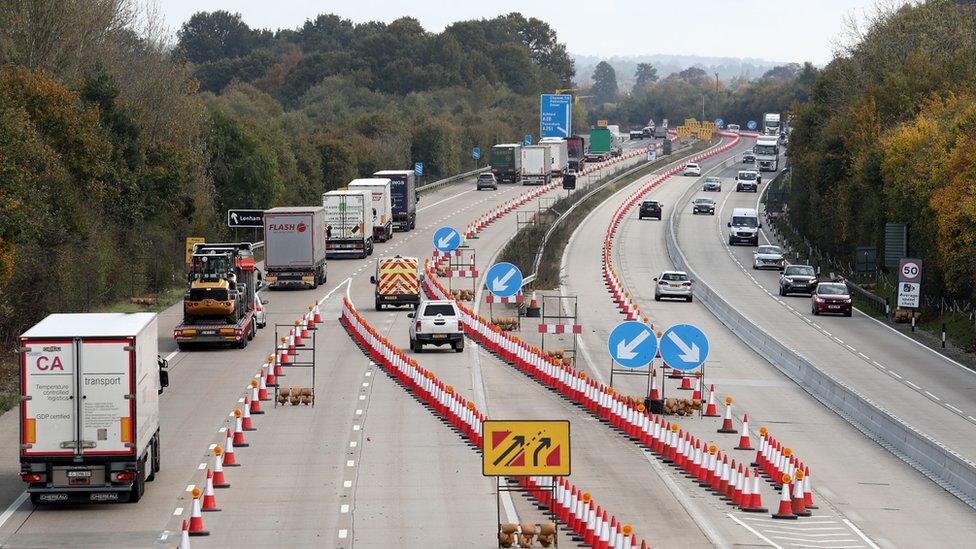
Cones were used last year but a new, quicker barrier is being tested
During the live test, the moveable barrier, which is used to create a new motorway layout with two different levels of contraflow systems, is being installed and removed.
Previous systems saw cones and metal barriers installed, but a new, quicker barrier is now being used.
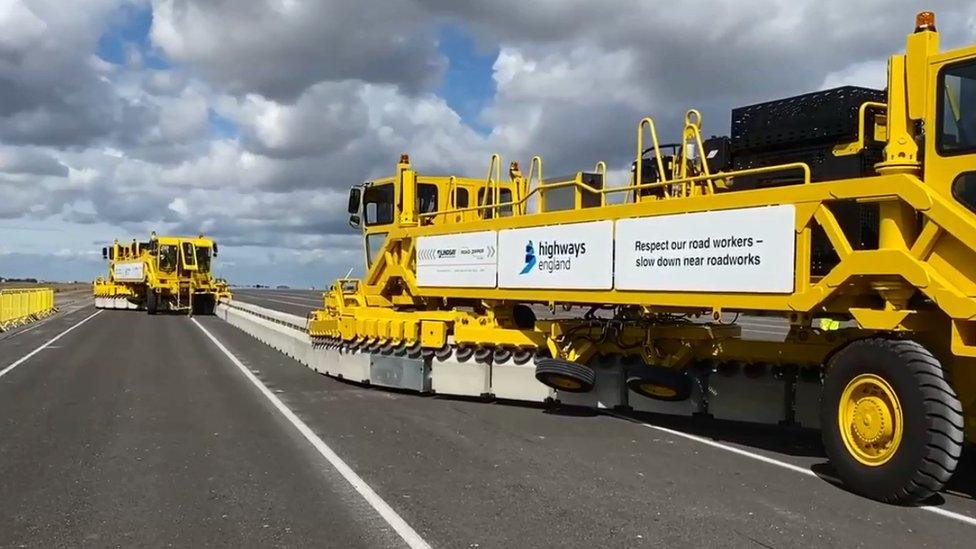
Machines, seen here testing the system at Manston, are used to install the Brock concrete barrier
Highways England operations director for the South East, Nicola Bell, said it was "a valuable dress rehearsal".
She said: "The test will help us to fine tune Operation Brock, finding ways to make the deployment quicker whenever the barrier is needed, whether it be in preparation for transition, or other disruption to cross-Channel services."


Operation Brock, external is just one part of Operation Fennel, external, a series of escalating traffic systems designed to cope with up to 7,000 HGVs in Kent. The overall plan includes:
TAP 20 which can hold 500 HGVs on the A20
Operation Brock under which 2,000 trucks can queue on the M20
Brock Manston which would see 4,000 lorries park in Thanet
TAP 256 which can hold up to 450 HGVs on the A256
The Sevington inland border facility near Ashford which holds 1,200 lorries
Further car parks at Ebbsfleet and Waterbrook
Lastly, Operation Stack, which would bring M20 closures, can be used but would be implemented as a last resort
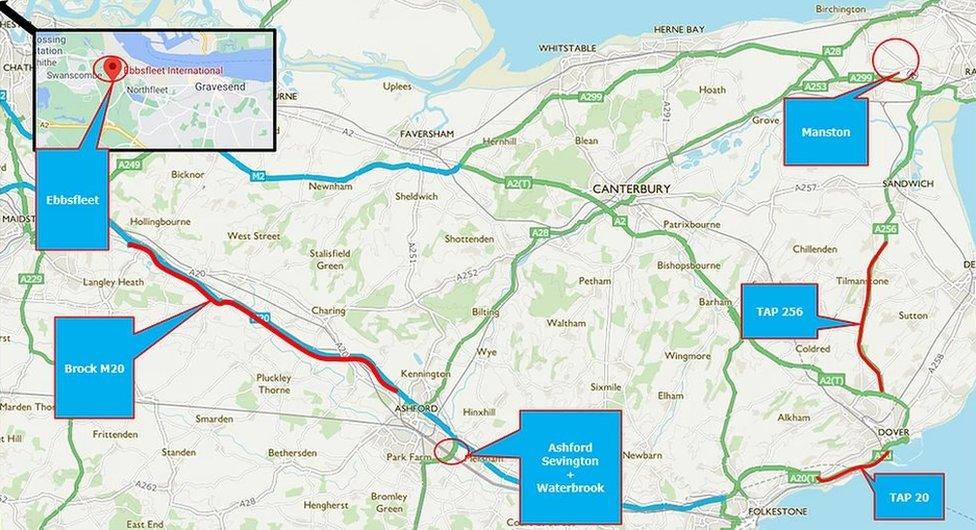
Operation Fennel is an escalating series of plans to deal with traffic flow
- Published9 December 2020

- Published30 November 2020
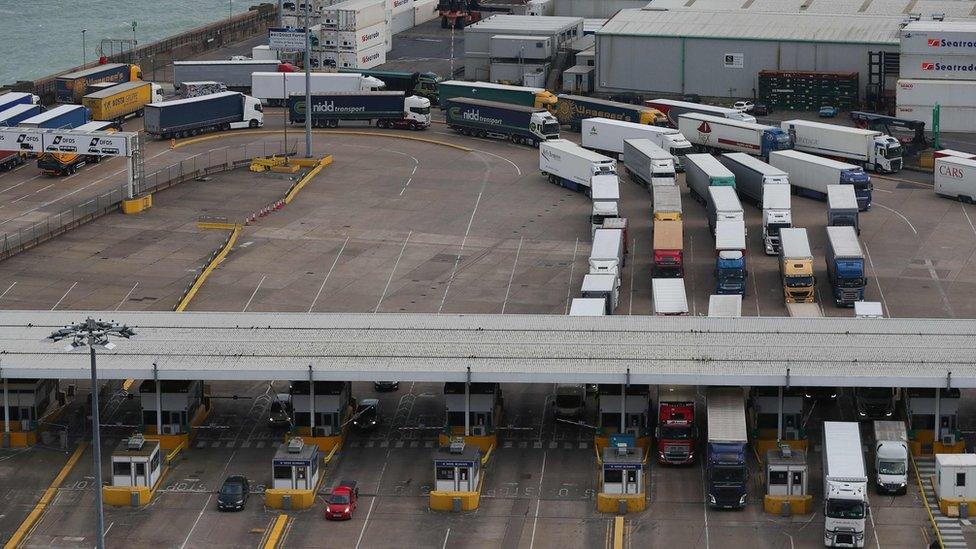
- Published17 February 2020
